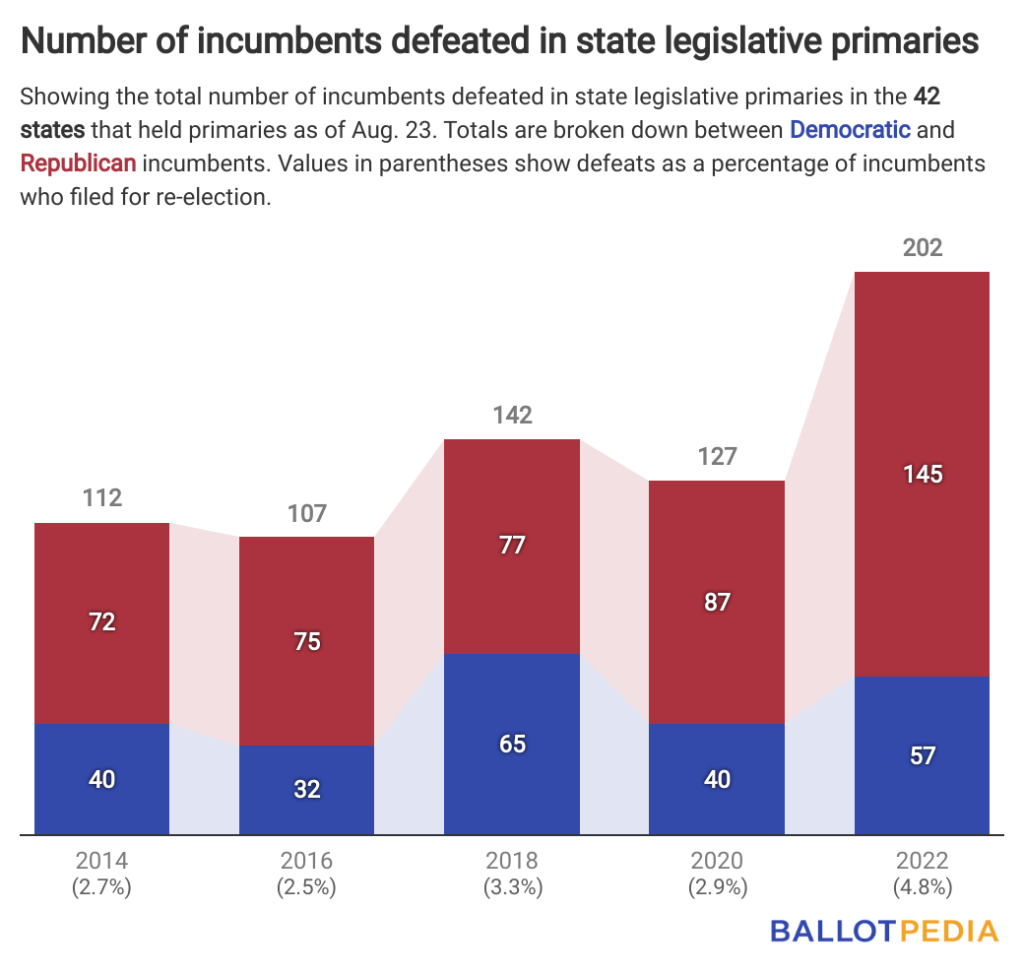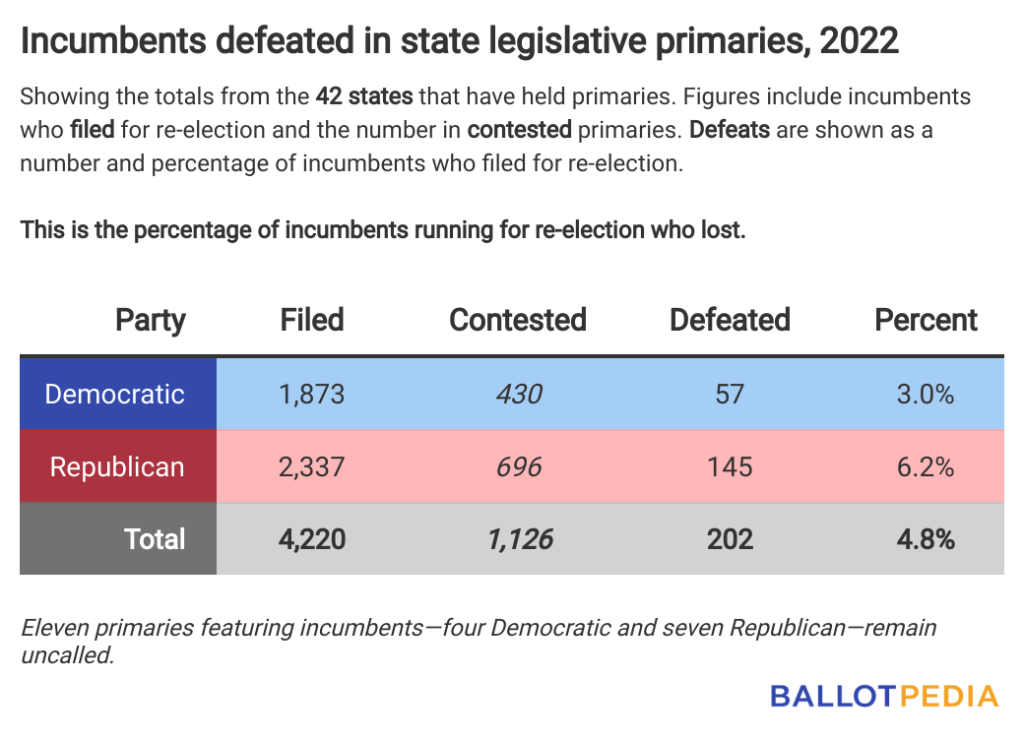So far this year, 202 state legislative incumbents—57 Democrats and 145 Republicans—have lost to primary challengers.
Across the 42 states that have held primaries, 4.8% of incumbents running for re-election have lost, an elevated level of incumbent losses compared to previous cycles.

These totals include data from both legislative chambers in Florida, state Senate races in New York, and runoff elections in Oklahoma, all held on Aug. 23, 2022.
- In Florida, two Democrats lost.
- In New York, one Republican lost.
- In Oklahoma, the one Republican incumbent in a primary runoff won.
Republican incumbents have lost at a higher rate than Democrats. Of the 2,337 Republican incumbents who filed for re-election, 145 (6.2%) have lost to primary challengers. For Democrats, 57 of the 1,873 who filed for re-election (3.0%) have lost.

Forty-five of these 202 incumbent losses (22%) were guaranteed due to redistricting. When states redraw legislative lines, incumbents can end up in a new district with other incumbents, leading to incumbent v. incumbent primaries or general elections. In these races, at least one incumbent must lose.
Of the 42 states that have held primaries so far, 11 have Democratic trifectas, 21 have Republican trifectas, and 10 have divided governments. Across these 38 states, there are 5,479 seats up for election, 87% of the nationwide total.
The figures for 2022 are subject to change. There are currently 11 uncalled primaries featuring incumbents: four Democratic and seven Republican.



